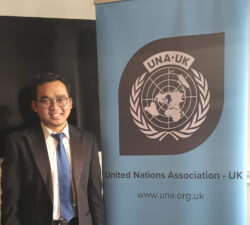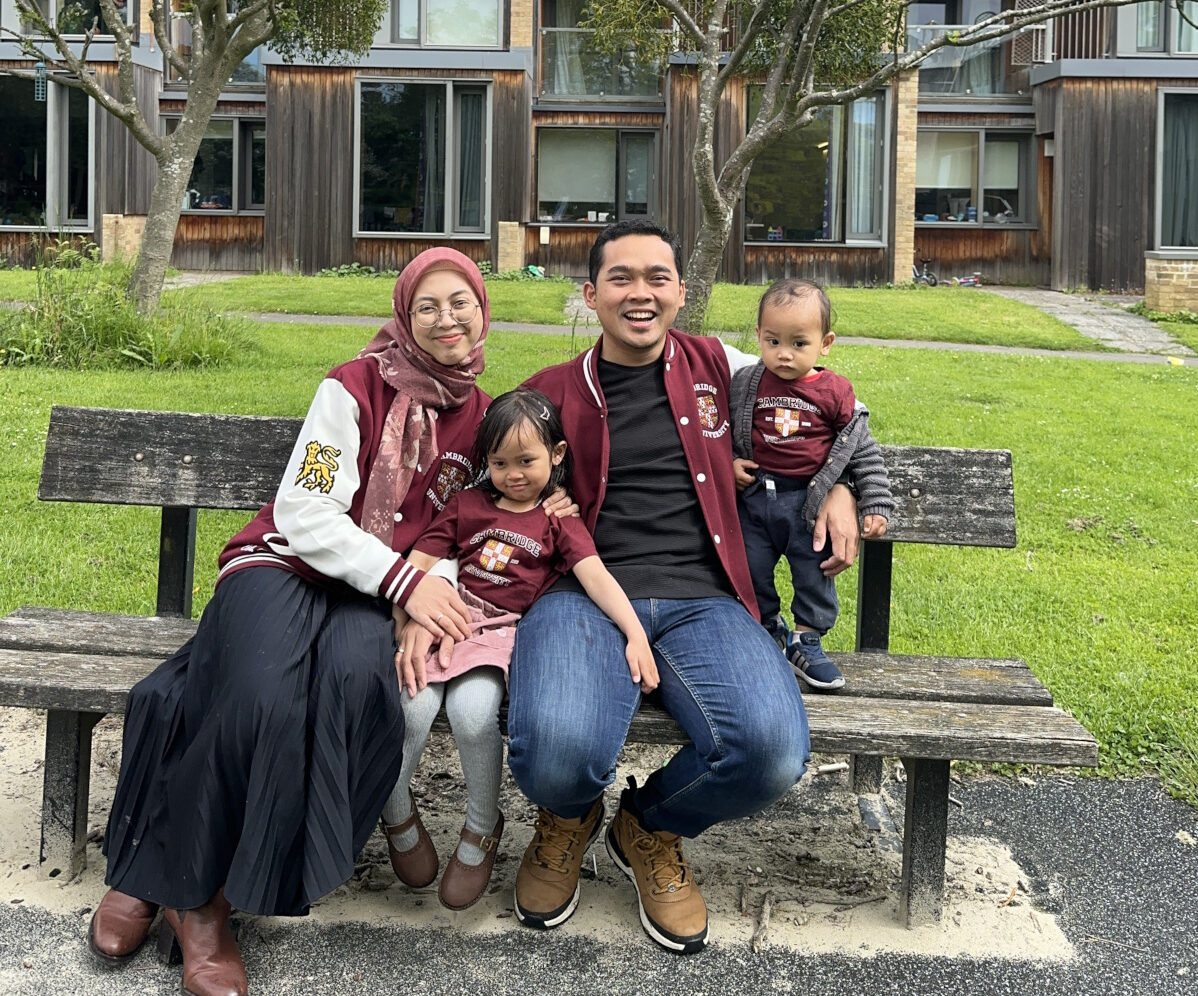Born and raised in rural Indonesia, Engineering PhD student Nabil Faradis witnessed first-hand the challenges faced by marginalised communities. His experiences fuelled a passion to drive sustainable development through innovative technology and solutions, with a specific focus on Quantum Technologies (QT) and he was hugely excited to be selected to participate in the United Nations Summit of the Future London Meeting earlier this year, representing the fields of science, technology, innovation, and digital cooperation.
Nabil’s academic journey began with an Engineering degree at Indonesia’s Gadjah Mada University, before completing a Masters in Engineering and Business at the University of Melbourne, Australia. Nabil then worked for seven years on innovative and sustainable projects across Southeast Asia, Germany, and Australia, including a role with the Indonesian Minister of State Secretary helping to drive forward strategic projects aimed at enhancing Indonesia’s innovation and talent development ecosystem.
Recognising the importance of utilising emerging technology wisely for the benefit of society Nabil decided to return to academia. Now in his first year of his PhD at Churchill, Nabil’s doctoral research aims to investigate how organisations and stakeholders can strategically position themselves to harness emerging Quantum Technologies for sustainable outcomes.
But what exactly are Quantum Technologies and why should they matter to decision-makers, industries and governments? As Nabil explains, “Imagine a world where computers can solve problems that are currently impossible, where communication is unhackable, and where sensors can detect the tiniest changes in our environment. This isn’t science fiction; it’s the promise of Quantum Technologies. Quantum Technologies harness the mind-boggling principles of quantum mechanics, the physics of the very small. This revolution isn’t just about faster computers, it’s about tackling the biggest challenges facing our planet… simulating weather for climate change, creating new material for ultra-efficient batteries, and finding more efficient nitrogen fixation for our fertilizer.”
Nabil’s field of research led to his invitation to represent youth voices at the United Nations Summit of the Future London Meeting, which was convened by the United Nations Association – UK (UNA-UK) with support from the Foreign, Commonwealth & Development Office (FCDO) in April. The United Nations Summit of the Future aims to reaffirm and progress commitments to the UN’s Sustainable Development Goals and one of the objectives of the London Meeting was to craft a recommendation document for the FDCO and Permanent Mission of the UK to the UN in New York. As Nabil explains, ‘the opportunity was particularly meaningful to me as it bridged my experiences in Indonesia with my research at Churchill. During the discussion I emphasised the imperative of integrating human rights considerations into technological development, advocating for the protection and empowerment of women and youth, open data sharing, and gender-responsive solutions. Furthermore, I stressed the urgency of prioritising sustainable technologies to combat climate change, advocating for minimising environmental harm and encouraging mitigation efforts on the development of technology.’

Since joining Churchill Nabil has been inspired by the brilliant and diverse academic community at the College. He came here with his partner and two young children and is also very grateful to the College community for the welcome they have received as a family!
I am deeply grateful for Churchill College’s generous support for students with families like mine. The community playground at the back of our house has been a source of joy for my children, and our warm and friendly neighbours have truly made us feel at home in Churchill.
After completing his PhD Nabil plans to disseminate his research findings to ensure they reach policymakers, businesses, and the public. He also hopes to work closely with the Indonesian government and business sector. As he explains, ‘my focus will be on influencing policy and programme development, creating frameworks for innovation, and fostering a thriving innovation ecosystem. This aligns with my broader goal of establishing sustainable business models tailored to Indonesia’s unique potential.’
In this short video, Nabil talks about the inspiration behind his field of research and his hopes for the future.
Looking further ahead, Nabil aspires to contribute to the academic sector, bridging engineering, innovation, business, and sustainability, ‘inspiring young minds to become problem solvers and empowering them to apply their research for societal impact.’

